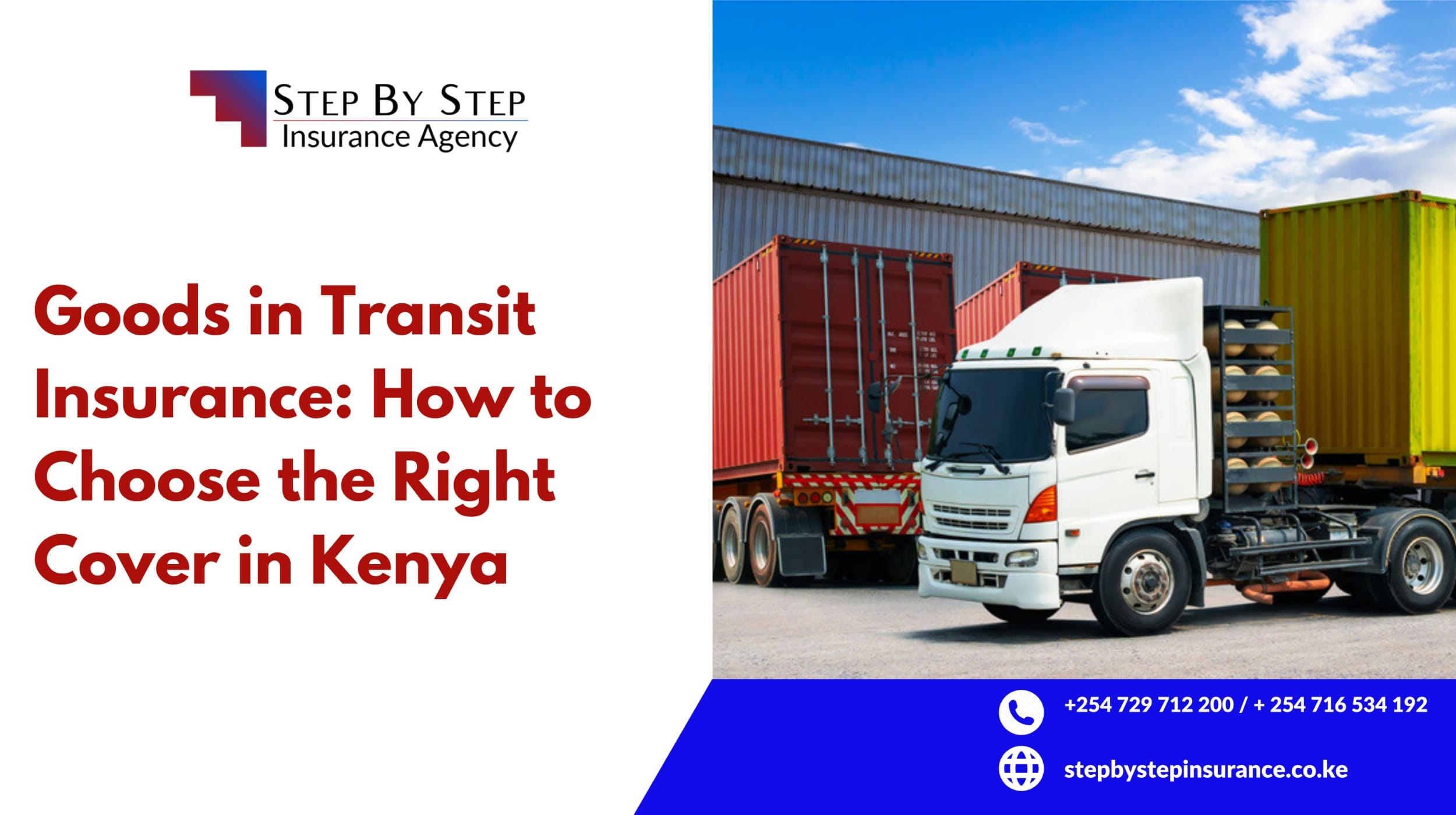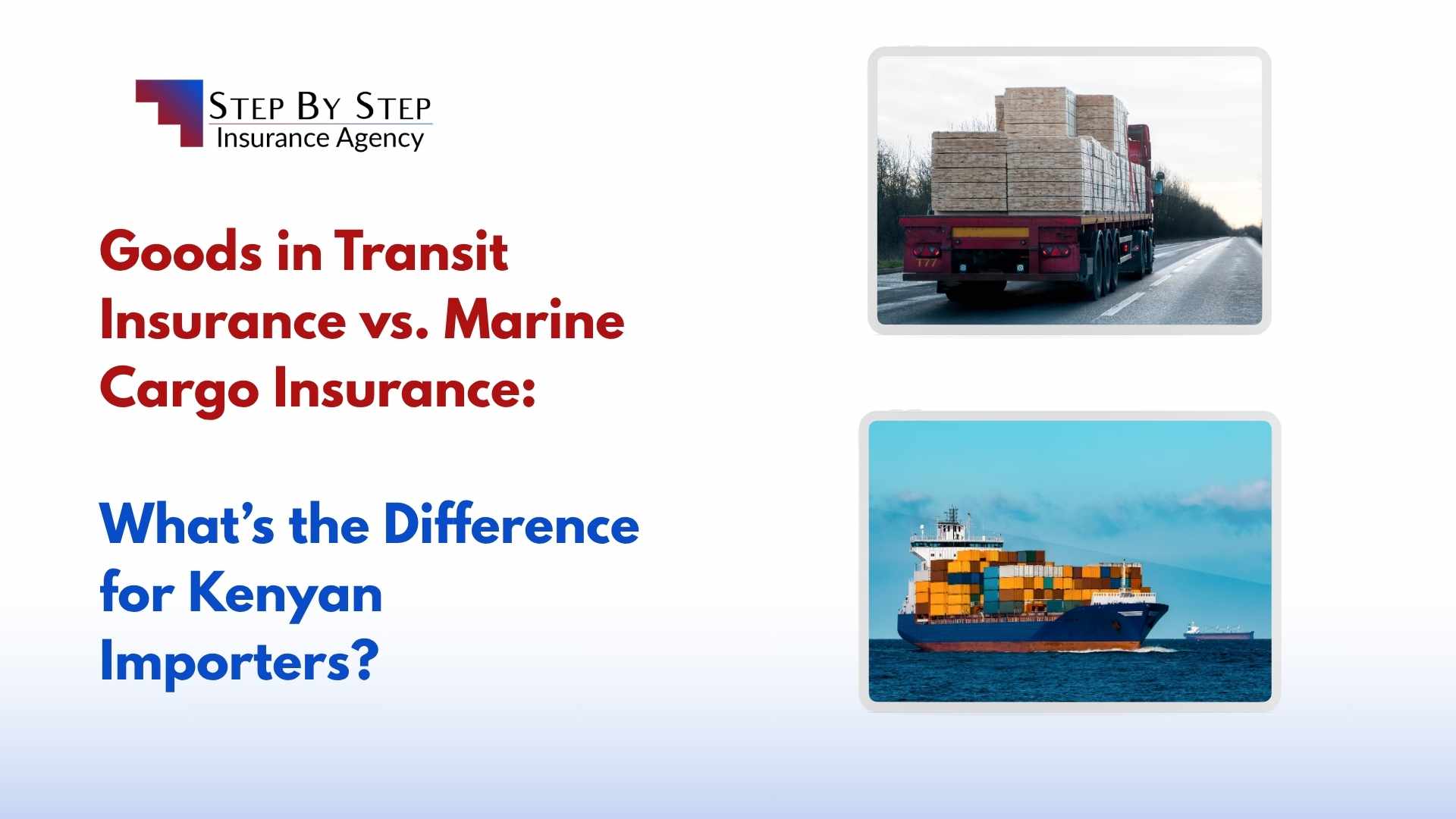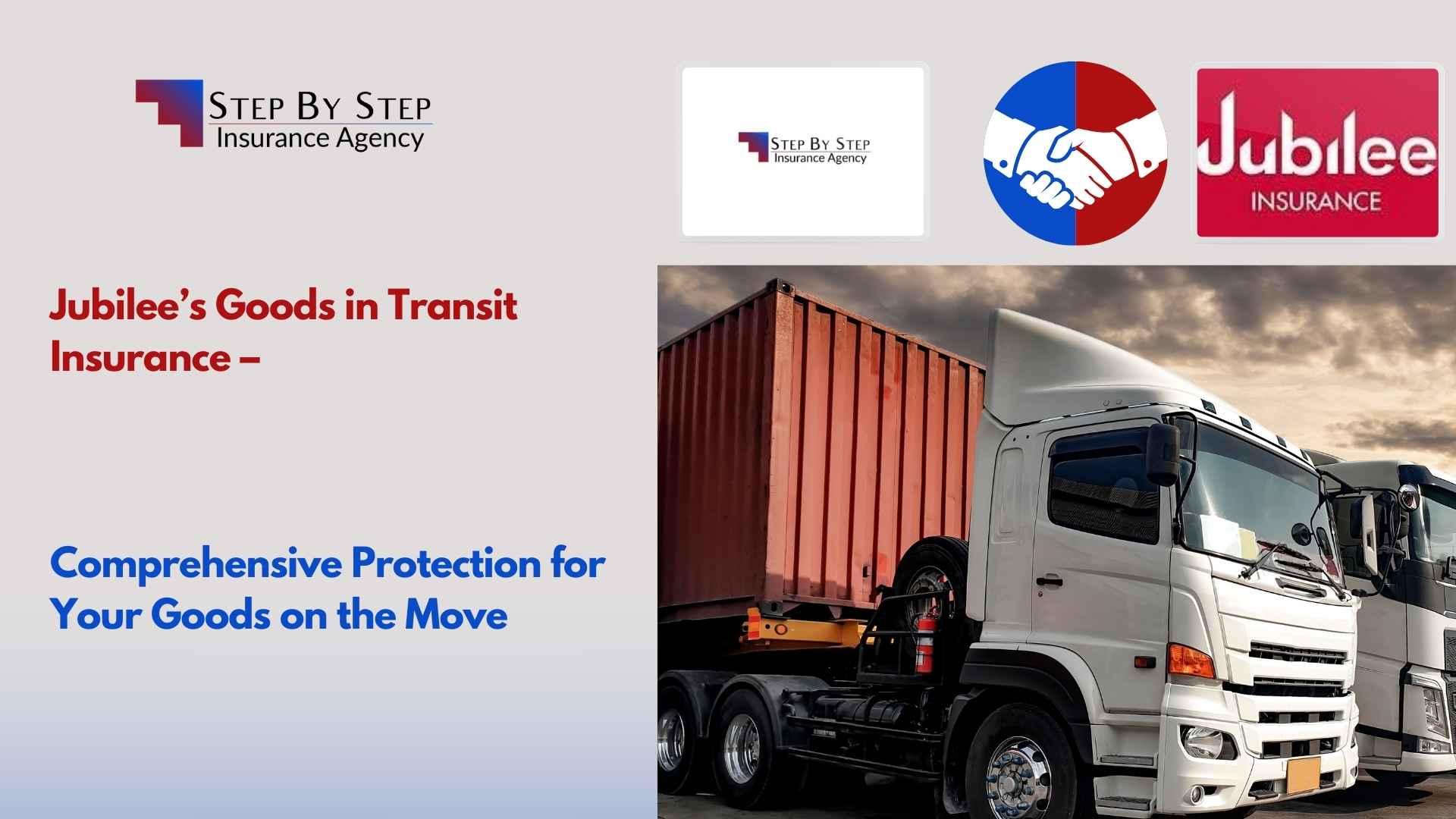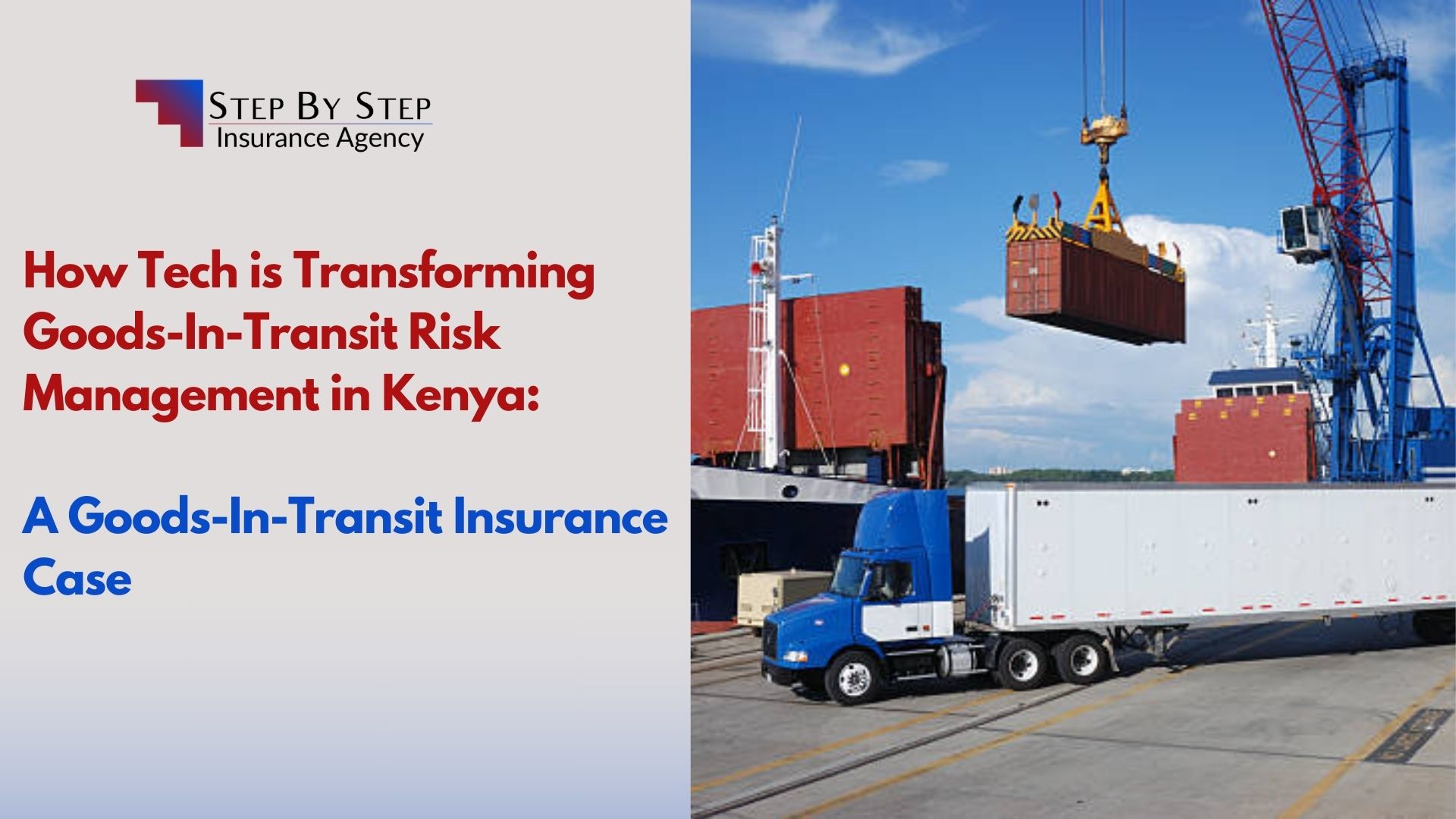Goods in Transit Insurance: How to Choose the Right Cover in Kenya
Transporting goods within or across Kenya is essential for many businesses—but it also comes with real risks, including theft, accidents, and damage in transit. Goods in Transit (GIT) Insurance can help manage these risks. However, in Kenya, cover only applies within the exact transit points stated in the policy. Delays, temporary storage, or offloading at unauthorised locations may fall outside cover unless specifically agreed in advance. Choosing the right GIT policy therefore requires careful review of routes, cargo type, limits, and policy conditions—not assumptions.
Key Takeaways
- GIT coverage in Kenya is strictly limited to declared transit points and routes.
- Most policies exclude breakage, spoilage, and weather damage unless specifically extended.
- Underinsurance can lead to reduced payouts even for valid claims.
- Cross-border shipments require explicit extensions beyond Kenyan territory.
- Immediate claim notification (often within 24 hours) is critical for settlement.
Table of Contents
Join Our Insurance Community
Interested in insurance trends, news, and insights specific to Kenya? Join our WhatsApp group to connect with professionals and stay updated on the latest developments in the insurance sector.
Join WhatsApp GroupUnderstand the Nature of Goods You Transport
Different goods attract different underwriting terms:
- Fragile items (electronics, glassware)
- Perishables (food, pharmaceuticals)
- High-value cargo (machinery, branded goods)
It’s important to note that most Kenyan GIT policies do NOT automatically cover breakage, spoilage, or temperature-related damage. These usually require specific extensions (for example, “breakage” or “deterioration of stock” clauses). Without these add-ons, losses caused purely by handling damage or temperature changes are commonly excluded.
Evaluate Transit Routes and Areas of Operation
Where your goods move matters. Some Kenyan insurers may exclude or strictly limit cover on high-risk routes or theft-prone corridors unless additional security measures are in place—such as:
- Vehicle tracking systems
- Armed or escort services
- Approved parking yards
Policy Limits, Liability & Underinsurance
Matching policy limits to shipment value is critical. In Kenya, underinsurance is common. When cargo is insured for less than its actual value, insurers may apply average clauses, meaning payouts are reduced proportionately—even when a claim is valid. This often surprises businesses expecting full compensation. Ensure:
- Each shipment is properly declared
- Sums insured reflect real cargo value
- Any sub-limits (especially for theft) are understood
Claims Process and Timing
Most Kenyan insurers require immediate notification of loss, often within 24 hours, followed by written documentation. Late reporting—without a clear and reasonable explanation—may lead to claim rejection or reduced settlement. Typical documentation includes:
- Delivery notes / invoices
- Police abstract (for theft or accidents)
- Driver statements
- Proof of cargo value
Prompt reporting and complete records significantly improve claim outcomes.
Weather-Related Losses (Important Clarification)
Adverse weather is often mentioned as a transit risk, but in practice: Weather-related damage is usually only covered if it directly causes an insured event, such as a road accident. Rain, flooding, or moisture damage on their own are frequently excluded unless specifically extended under the policy. Always check how “weather perils” are defined in your wording.
Cross-Border Coverage
Kenyan GIT policies do not automatically extend beyond national borders. Transport into Uganda, Tanzania, Rwanda, or elsewhere typically requires an explicit regional or cross-border extension. Without this, shipments may be uninsured once they leave Kenya—creating serious coverage gaps.
Role of Insurance Agencies
Working with a licensed intermediary such as Step By Step Insurance Agency can help businesses:
- Compare multiple insurers
- Review exclusions and security requirements
- Prepare documentation
- Navigate claims procedures
However, agencies cannot guarantee claim approval. Final settlement decisions always depend on policy wording and insurer assessment of the loss.
Bundling Policies (Fleet, GIT, Marine)
Some insurers offer discounts when GIT is bundled with fleet or marine insurance. While bundling may reduce overall cost, each policy still operates independently. Coverage terms, exclusions, and limits differ, so every section must be reviewed separately to avoid false assumptions of full protection. Lower premiums do not automatically mean broader cover.
Key Challenges Facing GIT Insurance in Kenya
Businesses commonly encounter:
- High theft exposure on major corridors
- Accident-related cargo losses due to road conditions
- Delayed claims from incomplete documentation
- Underinsurance leading to reduced payouts
- High premiums for SMEs
- Cross-border regulatory complexities
- Limited awareness of exclusions and extensions
Most disputes arise from misunderstanding policy conditions rather than insurer misconduct.
| Related Topic | Description | Learn More |
|---|---|---|
| GIT vs Marine Cargo Insurance | Understanding the differences for Kenyan importers | Read Article |
| Tech Transforming Transit Risk | How technology is changing GIT risk management in Kenya | Read Article |
Conclusion
Goods in Transit Insurance is a valuable risk management tool—but only when structured correctly. In Kenya, coverage depends heavily on:
- Declared routes and transit points
- Cargo type and extensions
- Security measures
- Timely claims notification
- Accurate valuation
There is no “one-size-fits-all” GIT policy. Businesses should take time to understand exclusions, limits, and regional restrictions before moving goods.
Next Step
Businesses transporting goods should consult a licensed insurance intermediary to compare policy wording, exclusions, security requirements, and premiums before choosing GIT cover. At Step By Step Insurance Agency, we help clients structure Goods in Transit policies based on real operational risks—not assumptions—so shipments stay protected where it matters most.
External Resources & Contact Information
For more information or to discuss your Goods in Transit insurance needs:






